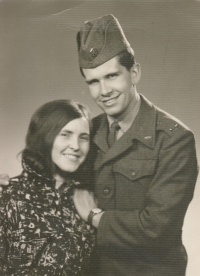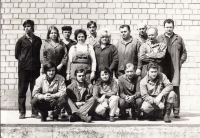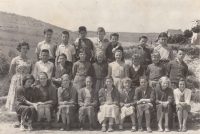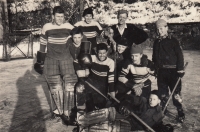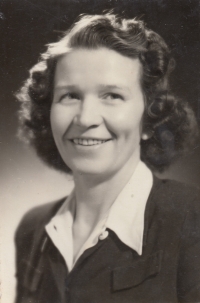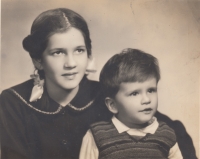After the August invasion, he wanted to fight, he soon saw how his friends were serving the Communist Party of Czechoslovakia

Download image
Josef Plíhal was born on January 14, 1946 in Jáchymov. He had partly German roots, as his father Josef Plíhal Sr. came from a Czech-German marriage. After the occupation of the Sudetenland in 1938, he claimed Czech nationality and went to Prague. His siblings stayed in Jáchymov and claimed German nationality. The memorial’s uncle enlisted in the Wehrmacht and died in the first weeks of the Second World War on the front in Poland. His aunt Johanna was imprisoned and executed in a concentration camp by the Nazis for spreading information. After the pre-war and wartime experience, his father supported the Communists and joined the party, but he did not agree with the subsequent political development and eventually left the Communist Party of Czechoslovakia. When the invasion of Warsaw Pact troops began in August 1968, Josef Plíhal wanted to defend himself militarily. In 1971, he married Eva Maříková, they had a son Josef and a daughter Marcela. His wife’s father was imprisoned by the communists, as a lawyer he helped political prisoners in trials. Josef Plíhal trained to be a machine fitter and spent most of his working life producing radiometry and dosimetry. When it finished, he worked briefly in a metal press. He retired in 2002 and was still living in Jáchymov in 2023.
